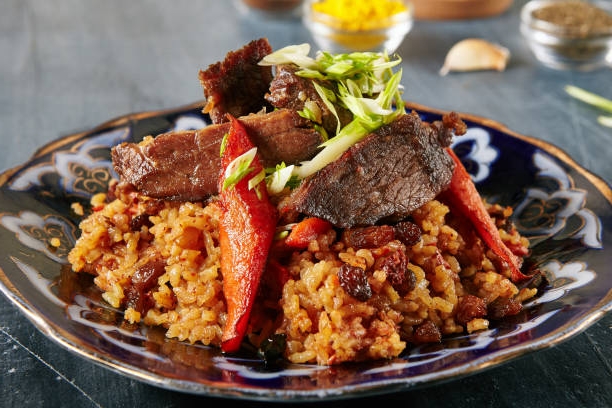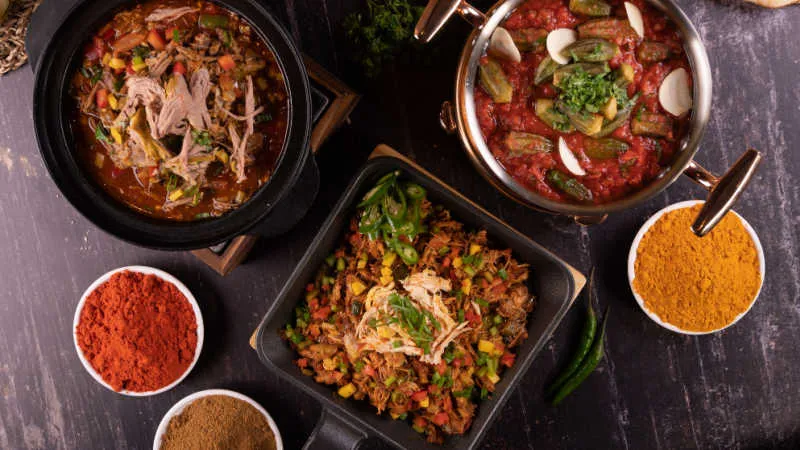Bahraini Culinary Heritage
Bahrain is known for its vibrant culture, warm hospitality, and a food heritage that blends flavors of the Middle East, Persia, India, and Africa. Among its rich culinary traditions, soups and stews hold a very special place. They are not just meals but experiences, carrying centuries of stories, family memories, and cultural pride. Whether served during festive occasions, family gatherings, or as a comforting dish on a quiet evening, Bahraini soups and stews reflect the soul of the island nation.
The Cultural Significance of Soups and Stews
In Bahraini households, soups and stews are more than just dishes. They are symbols of care, nourishment, and tradition. In many families, the preparation of these meals often starts early in the day, filling the house with aromas that signal togetherness and warmth. Soups are often served at the beginning of a meal, while stews take the center stage with rice or bread. Both are deeply tied to Bahraini hospitality, where serving hearty food is a way of expressing respect and love to guests.
The Influence of Bahrain’s Geography and Trade
Bahrain’s history as a trading hub played a huge role in shaping its food culture. The island’s access to the Arabian Gulf provided an abundance of seafood, while its role in regional trade routes brought spices, herbs, and cooking techniques from India, Persia, and the Levant. As a result, Bahraini soups and stews are a fascinating blend of local ingredients and international influences. Cinnamon, cardamom, saffron, and turmeric frequently find their way into these dishes, creating a balance of warmth and depth.

Traditional Soups in Bahraini Cuisine
Soups in Bahrain are often hearty and aromatic, offering comfort and richness. One of the most beloved is shorbat adas, a red lentil soup infused with cumin, turmeric, and garlic. It is a staple during Ramadan, often served to break the fast, as it is light yet nourishing. Another favorite is chicken shorba, where tender chicken pieces simmer with spices and vegetables, creating a balanced and flavorful broth.
Seafood soups also hold a special place in Bahrain, with fish-based broths enriched by herbs and spices, reminding people of the country’s deep connection with the sea. These soups highlight how Bahraini cooking respects simplicity while creating layers of flavor that linger long after the meal.
Iconic Bahraini Stews
Stews are the heart of Bahraini home cooking. They are filling, flavorful, and often served alongside rice, which acts as the perfect partner to soak up the rich sauces. One of the most iconic stews is margougat bamia, a stew made with okra, tomatoes, onions, and either beef or lamb. The okra gives the dish a unique texture while absorbing the bold flavors of the sauce.
Another traditional favorite is margougat khudra, a vegetable-based stew that combines potatoes, carrots, and zucchini in a tomato-rich sauce. This dish reflects Bahrain’s love for seasonal vegetables and the skill of transforming simple ingredients into something extraordinary.
Lamb-based stews, often slow-cooked with spices and herbs, are also central to Bahraini cuisine. These dishes not only celebrate the rich flavors of meat but also highlight the tradition of slow cooking, where patience brings depth and perfection to every bite.
The Role of Soups and Stews in Ramadan
Ramadan is one of the most important times in Bahrain, and food plays a central role in bringing families together. Soups and stews become essential during this month. Soups like shorbat adas provide a gentle way to break the fast, while hearty stews like margougat bamia are served later in the evening to provide strength and energy. These dishes are not only delicious but also deeply symbolic, representing nourishment for both body and soul.
Family Traditions and Passed-Down Recipes
In Bahraini families, recipes for soups and stews are often passed down from one generation to another. Grandmothers teach their daughters and granddaughters the secrets of spice blends, cooking techniques, and the patience required to achieve perfect flavors. These recipes are not usually written down but are remembered through practice, storytelling, and shared meals. This tradition ensures that every family has its own unique touch to classic dishes, making Bahraini cuisine a living heritage.
Ingredients That Define Bahraini Soups and Stews
The richness of Bahraini soups and stews lies in their ingredients. Lentils, chickpeas, tomatoes, okra, lamb, and chicken are among the most commonly used. Spices play a key role, with cumin, turmeric, cardamom, and cinnamon often taking the spotlight. Fresh herbs like coriander and parsley add freshness, while dried limes give an unmistakable tang that is unique to Gulf cooking.
Rice, particularly basmati, often accompanies stews, absorbing the flavors of the sauce. Traditional flatbreads also play a role, used to scoop up every last bit of the dish. These simple yet essential pairings highlight the balanced approach to Bahraini food: hearty, satisfying, and deeply flavorful.
The Modern Twist on Traditional Recipes
While tradition remains strong, modern Bahraini chefs and home cooks are experimenting with soups and stews to suit contemporary tastes. Some reduce the oil and fat content to make the dishes lighter, while others add new vegetables or plant-based proteins. Restaurants in Bahrain often present traditional stews with a creative twist, blending the old with the new. Yet, no matter the innovation, the essence of comfort and warmth always remains.
Soups and Stews as a Symbol of Community
Food in Bahrain is about more than nourishment; it is about sharing. Soups and stews, being cooked in large pots, naturally bring people together. During festivals, weddings, and gatherings, big batches are prepared to serve everyone. The act of sitting together, enjoying bowls of soup or plates of stew, creates bonds and strengthens relationships.

The Global Appeal of Bahraini Flavors
Though rooted in tradition, Bahraini soups and stews have global appeal. Travelers to Bahrain often fall in love with the richness of the flavors and the hospitality tied to food. With globalization, more people outside the Gulf are becoming curious about Bahraini dishes, and restaurants abroad are beginning to include them on their menus. The balance of spices and the comforting nature of these meals make them attractive to people from diverse cultures.
The Nutritional Value of Soups and Stews
Beyond taste and culture, Bahraini soups and stews are also nutritionally valuable. Lentil soups are packed with protein and fiber, while vegetable stews provide essential vitamins and minerals. The use of spices like turmeric and cumin also contributes to health benefits, from boosting immunity to aiding digestion. This combination of flavor and nutrition makes these dishes a wholesome part of the Bahraini diet.
Preserving Bahraini Food Heritage
As Bahrain modernizes and global influences grow, preserving traditional dishes becomes even more important. Families, chefs, and cultural organizations are working to ensure that the younger generation values their culinary heritage. Soups and stews are central to this preservation effort, as they represent not just food but a lifestyle, a connection to ancestors, and an identity. Documenting recipes, holding food festivals, and teaching cooking in schools are some of the ways this heritage is being kept alive.
Experiencing Soups and Stews in Bahrain
For visitors to Bahrain, experiencing traditional soups and stews is a must. Local restaurants, markets, and family-run eateries often serve these dishes with authenticity and love. Sitting down to a bowl of shorbat adas or a plate of margougat bamia gives travelers more than a meal it offers a window into Bahraini life, culture, and traditions.
Conclusion: A Flavorful Legacy
Traditional Bahraini soups and stews are more than just food; they are cultural treasures that carry history, memory, and meaning. They tell stories of trade and tradition, family and faith, simplicity and richness. From the comforting lentil soup of Ramadan evenings to the hearty lamb stews served at family celebrations, these dishes represent the heart of Bahraini hospitality and identity.
As Bahrain continues to grow and evolve, its soups and stews remain timeless, reminding everyone that the best flavors are those cooked with patience, love, and tradition. Whether enjoyed in a Bahraini home or discovered on a traveler’s journey, these dishes are a testament to the enduring beauty of Bahrain’s culinary heritage.
Do follow Gulf Magazine on Instagram.
Also Read – Food Festivals Elevating Bahrain’s Culinary Identity



